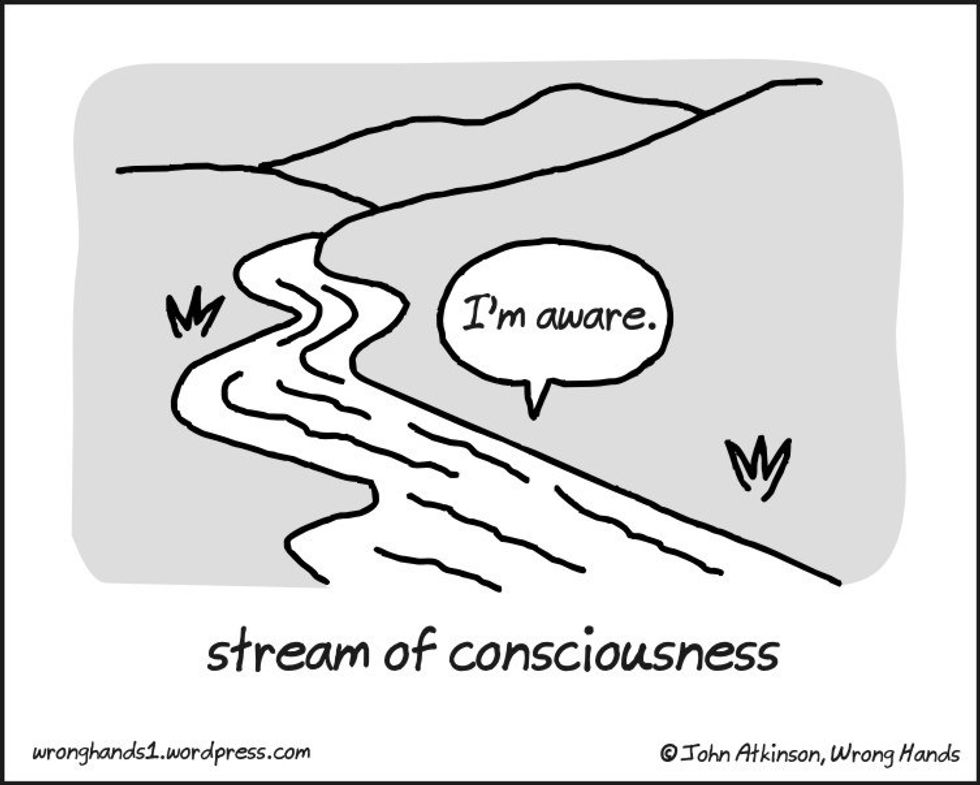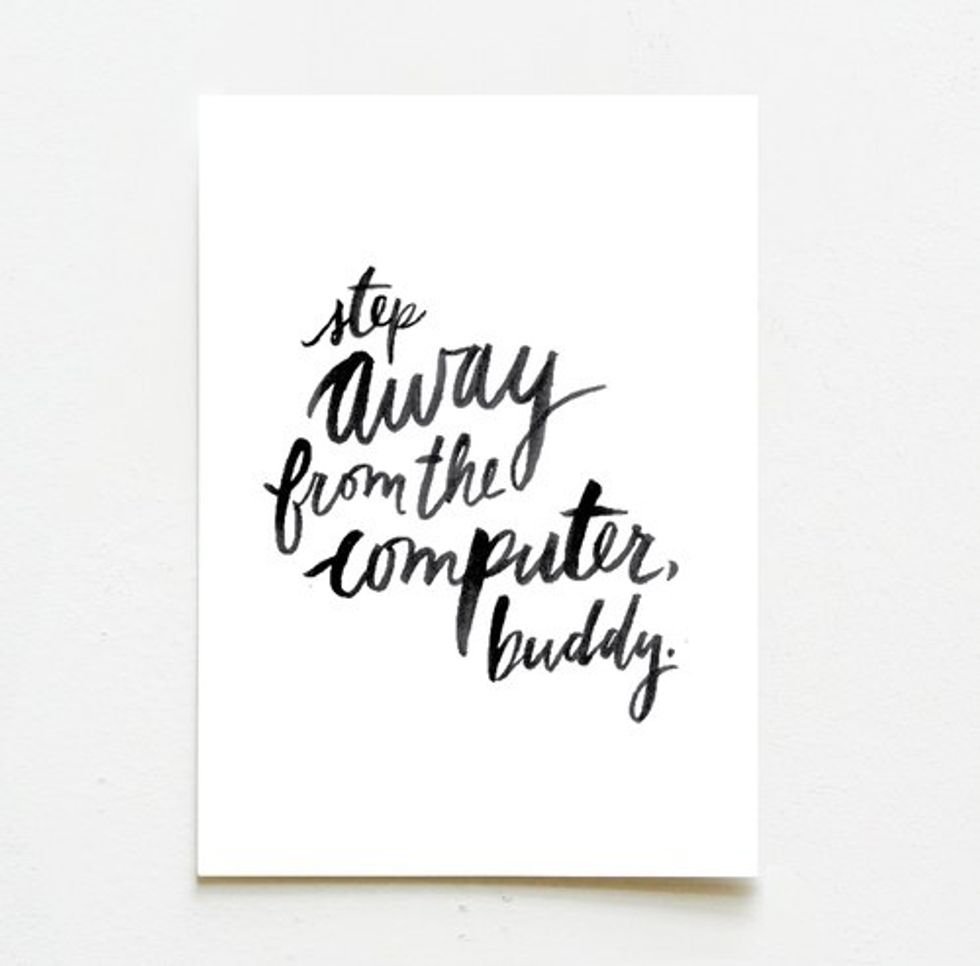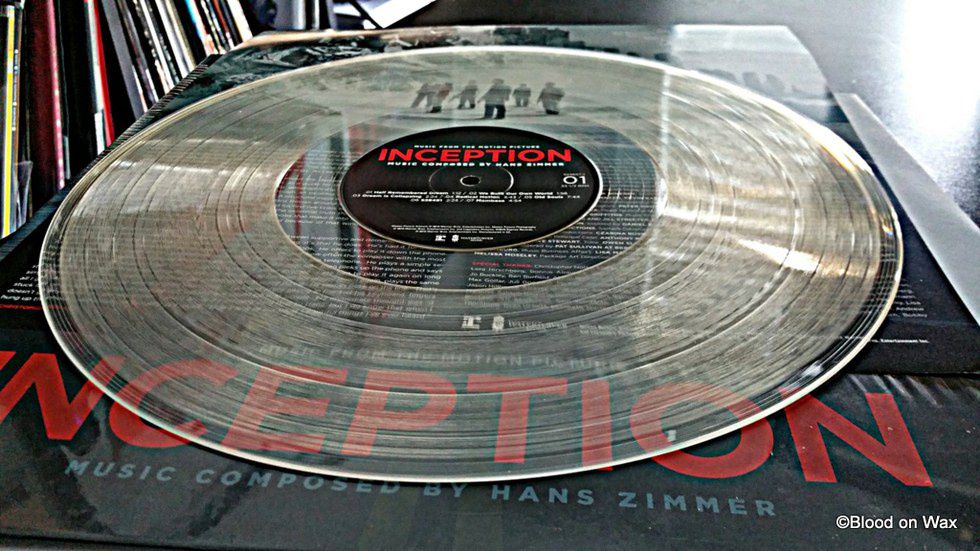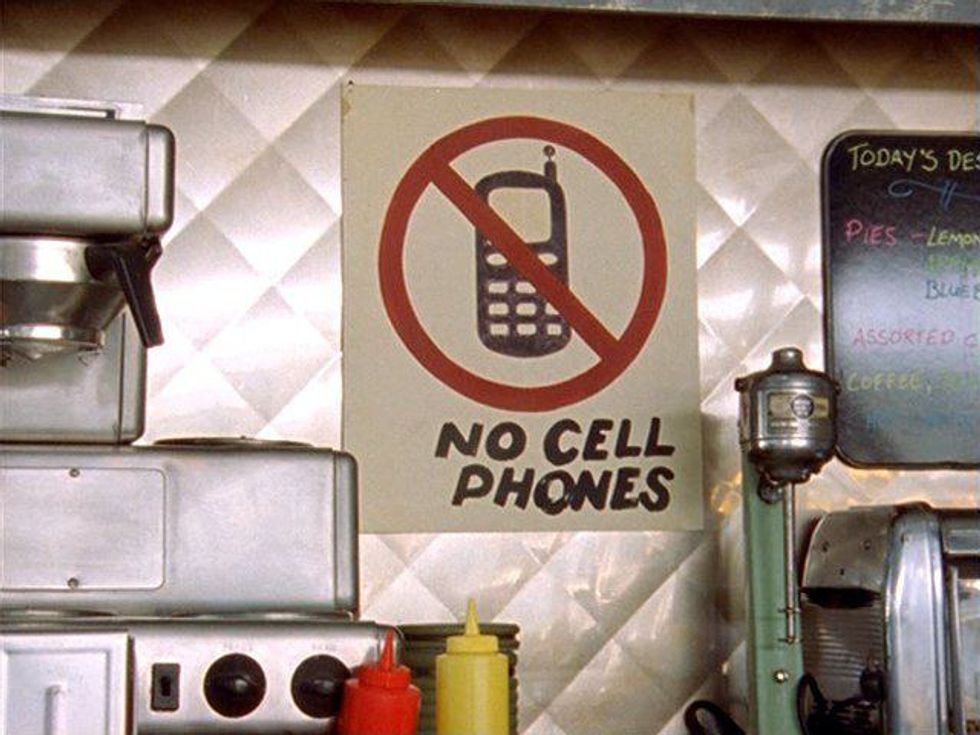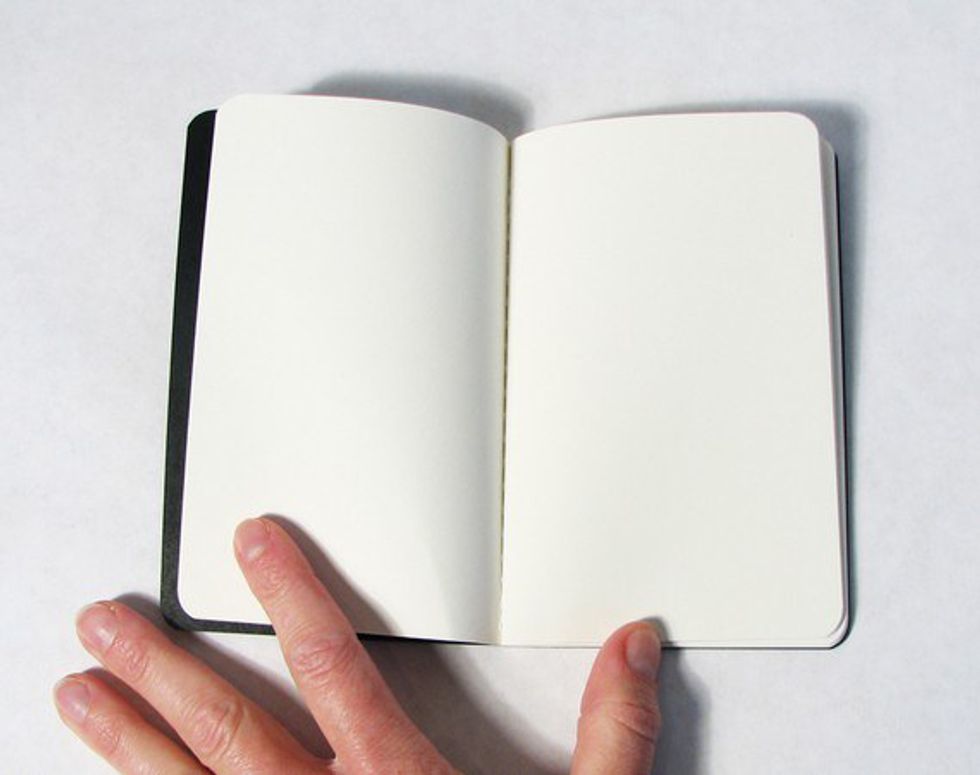As a musician who writes songs and the occasional poetic verses, as the student who must write academic and research essays on the weekly basis, as the average human being who writes articles on the media as a creative or professional outlet: writer’s block is an inevitable part of our writing careers. I must admit, I feel like this happens too often. No matter how creative, bright, or intelligent we think we might be, there will always be times when we cannot write a single thing we are satisfied with or even any word at all. Our minds go blank and we feel the need to fill this blank space with something, anything, so long as it be good and soon. Though I believe that writer’s block is a process in which we must patiently wait and cope through as we would with a cold, it would be a lie to say I do not try anything to get it over with as soon as possible. Here are 10 attempts at getting over writer’s block!
1. Stream of consciousness
We are always thinking about something. Most of the time there is so much information, feelings, and thoughts in our brains that it is overwhelming and difficult to cherry pick our ideas. This is why free writing anything and everything in our head is the easiest pathway out of writer's block.
2. Reading for Inspiration
Sometimes all we need is a little inspiration to get our pen moving and our mind spilling out with thought. Reading something creative like a novel or reading your favorite author could possibly motivate you to create such novelty. When working on an academic piece, reading more on the subject could provide you more clarification and information for your work.
3.Talk about it
Talking to another person, such as a friend, about what you are attempting to write or what you are currently writing could help with writers block for a couple reasons. Disclosure is therapeutic so it will ease your stress and when we discuss and explain a topic to someone we are better able to grapple it in our minds.
4. Step away
Perhaps you've been staring at your laptop for too long. Maybe you have worked relentlessly on a piece without stopping. When you feel like you have nothing else to give it is time to step away and take a break for a few minutes, hours, or even days.You should allow your body and mind to rest and take a breather so you can return refreshed.
5. Move location
An environment always influences an individual. It is crucial to be comfortable in your location of writing. You may want to sit on your favorite chair, go outside, search for a quiet space, or go to a loud cafe. Find your niche!
6. Listen to music
At times you may need to unplug from the world and plug into your music. Some people enjoy listening to instrumental music such as jazz or classical. Others may get their pen moving with a song that pumps them up. I enjoy the Inception soundtrack because it instills a powerful sensation in my writing process! Music allows for feeling and induces thought.
7. Away with distractions
That's it. No more Facebook, no more texting, no more searching for memes. If the source creates procrastination there will never be any written creation!
8. Change your medium
One way to feel refreshed and open minded towards writing is simply changing you medium. If you have found yourself at a loss for words while writing on your laptop, consider writing in a physical notebook. If you have been writing in a notebook with lines, try writing on a blank page notebook. If that is still not enough, feel free to write on a napkin, post-it, or anything that your pen can bear.
9. Write an outline
What are the things you must say? When you create an outline it is easier to pinpoint everything you want to express in your writing. You do not have to worry about fancy hooks, introductions, transitions, or cohesive sentences. An outline may detail anything and everything that comes to mind when writing about particular topics or concepts.
10. Search for a model piece
We may want to search for a piece that we aspire our work to be like. What is it about this particular piece that makes it successful and engaging? What methods did they use? Use that sample writing piece as your road map!




